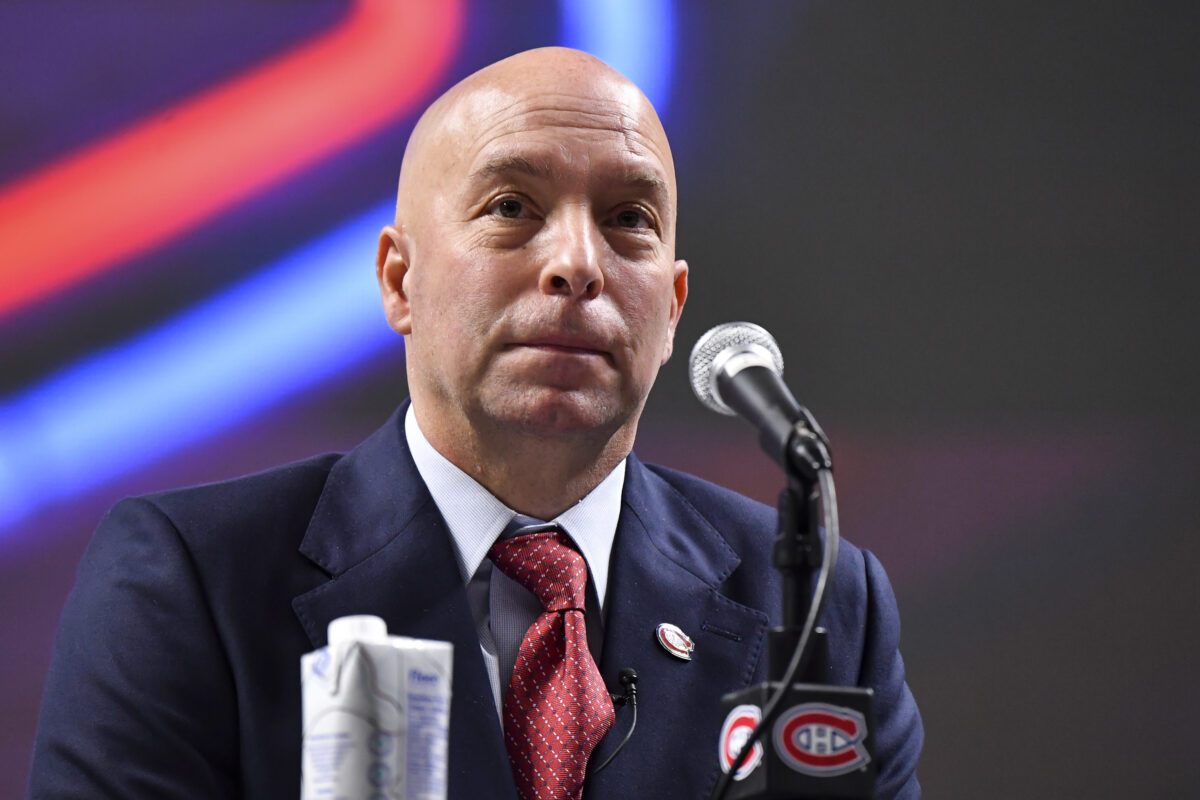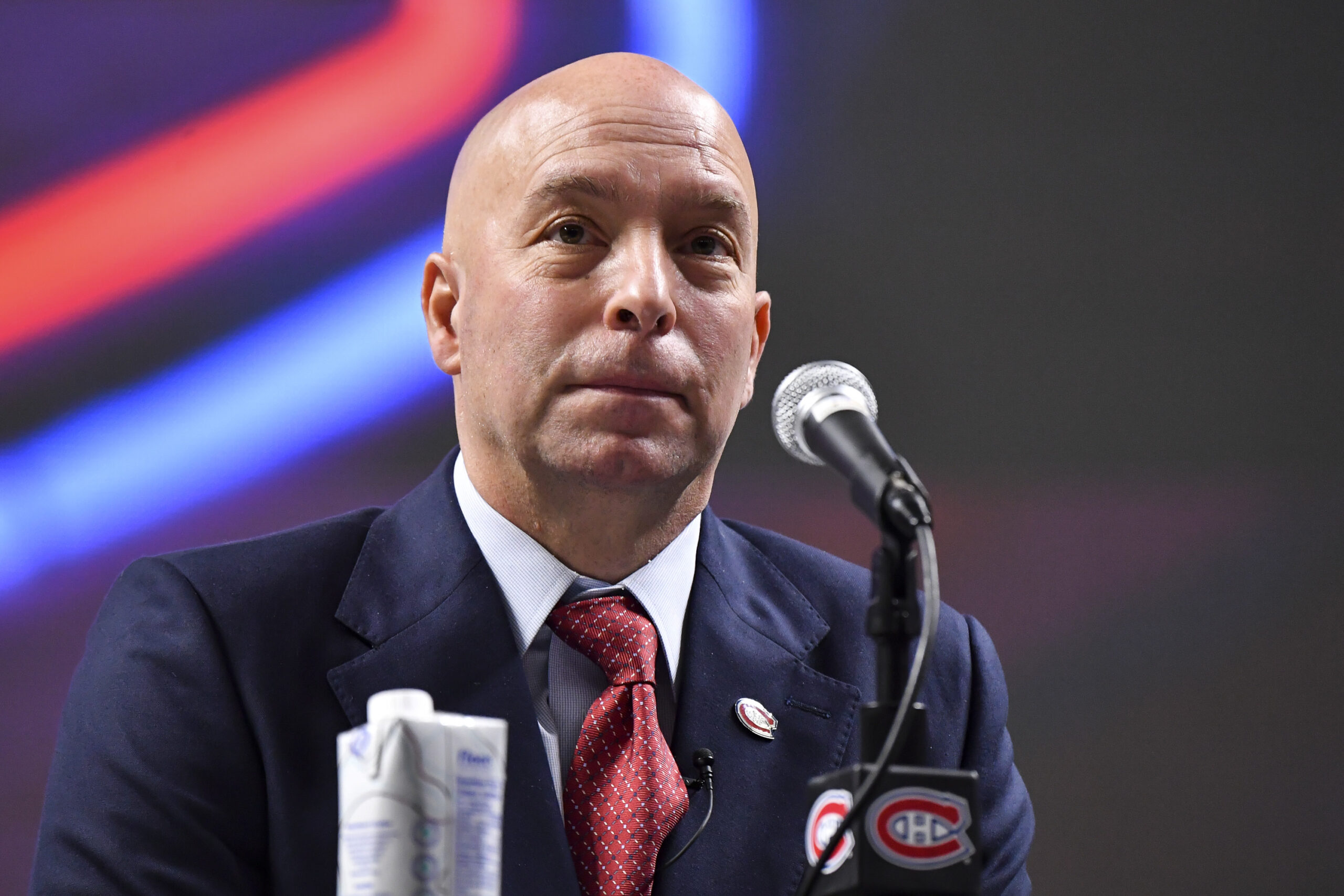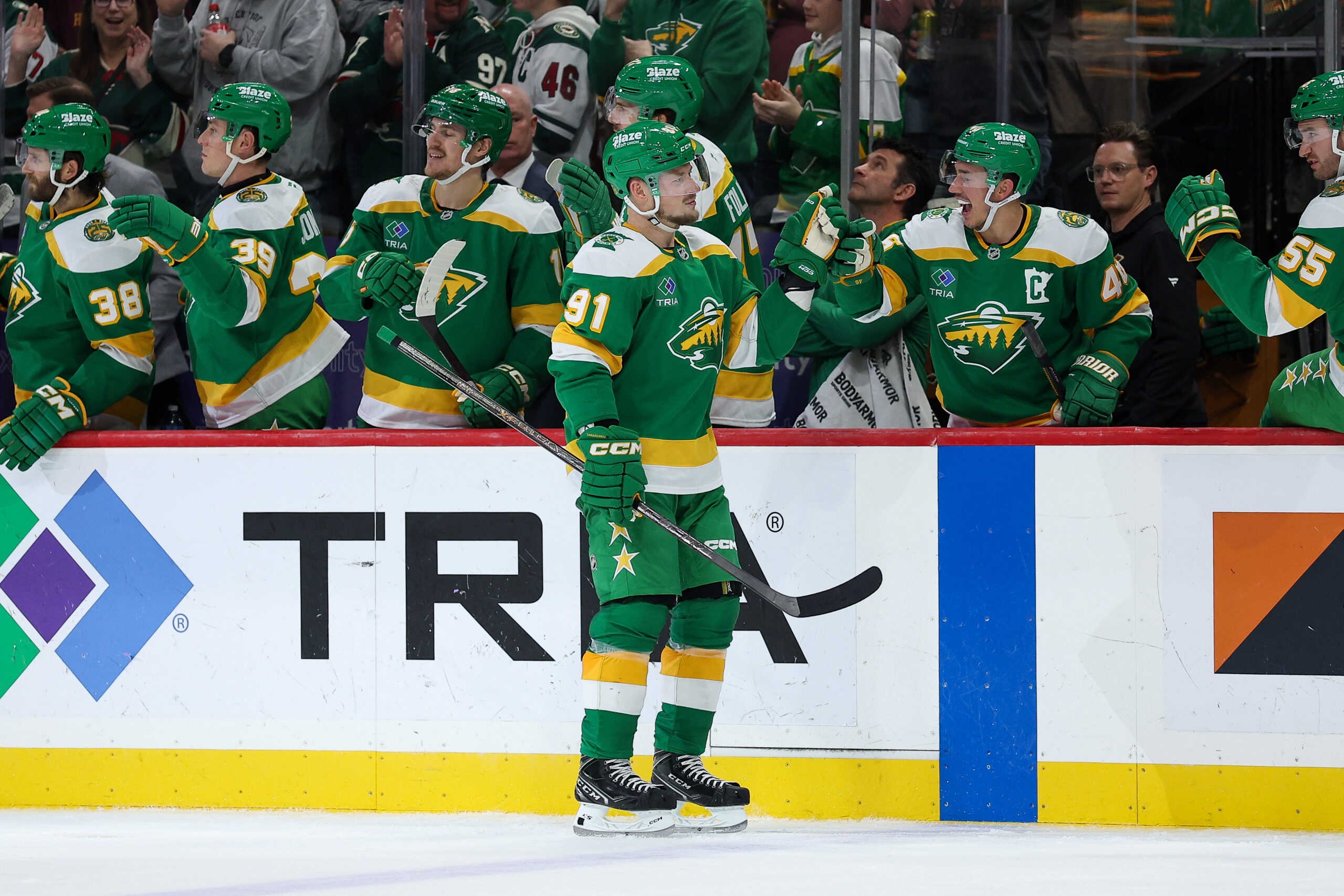Over the last few days, two trades sent a clear message to the rest of the league: there is value to be found in cap-troubled teams, and the smart organizations are taking advantage. The Dallas Stars sent forward Mason Marchment to the Seattle Kraken in exchange for a third- and fourth-round pick. Marchment, 30, was coming off a season where he scored 47 points in 62 games, a highly productive middle-six winger with one year left on his contract. The New Jersey Devils also moved veteran forward Erik Haula to the Nashville Predators for a fourth-round pick and a prospect. Haula was certainly less productive this season, but brings a strong two-way game. Two decent playoff performers for relatively minor assets.
These are exactly the kinds of moves the Montreal Canadiens should be looking to make this summer.
Montreal has spent the last few years focused on rebuilding, accumulating prospects and draft capital. But with more cap flexibility, a strong prospect pool, and clear needs in the middle of the lineup, the Canadiens are in a position to weaponize their cap space, not just to take on bad contracts, but to add quality NHL players at a discount. A Marchment-type acquisition would have been perfect.
Why the Canadiens Should Jump In
There are several reasons Montreal should follow the model we saw this week. First, they have the cap space to do it. General manager Kent Hughes and vice president of hockey operations Jeff Gorton have the room to take on a contract of $3 to 5 million without disrupting their internal structure. That gives them a massive edge over most contending teams, especially those trying to juggle expensive cores and pending extensions.
Second, they have the assets to make it happen. The Habs own a surplus of draft picks in the next two years, including multiple third-rounders and a deep pool of young prospects. If the return for players like Marchment and Haula is a mid-round pick, Montreal can easily outbid other teams without hurting their long-term plans.

Third, these types of veterans offer short-term value with little long-term risk. A player like Marchment, for instance, had one year left on his deal. If it works out and the Canadiens are in the hunt, great, he can help push them toward a playoff run. If it doesn’t, Montreal can flip him at the trade deadline, potentially for more than they paid, especially if they retain some salary. It’s a low-risk, high-upside play.
Finally, there’s the playoff factor. If the Canadiens are serious about building toward contention over the next few years, they need more players built for postseason hockey. Marchment is a physical, playoff-style forward. Haula has always elevated his game in big moments. These aren’t just regular-season depth guys; they’re the kind of veterans who help young teams grow into contenders.
Potential Targets Around the League
There are already some interesting candidates who could become available this summer; veterans on tight cap teams that might be looking to move money and reset their roster construction. Here are a few names that make sense for the Canadiens.
The Colorado Avalanche made waves by acquiring Brock Nelson to strengthen their top six during the last trade deadline. With an extension now in place for Nelson, that move puts pressure on Charlie Coyle, who also arrived at the deadline via a trade from the Boston Bruins. With only $1.2 million left in cap space and more business to do, Colorado could be looking to move Coyle’s $5.25 million salary. He’s a veteran with playoff experience, can play center, and would bring leadership to the Habs’ middle six. With Colorado fighting for cap space, this deal could be done for cheap.
The Avalanche could look to move Coyle, considering they also have Ross Colton. He’s slightly younger at 28 and carries a $4 million cap hit for the next two years. If the Avs go in a different direction for their third-line center, Colton could be made available. He’s physical, plays with an edge, and has Stanley Cup experience. The Canadiens could do a lot worse for a stabilizing presence in the middle of their lineup.
Related: Montreal Canadiens Need Veteran Leadership for the Next Step
On the back end, Dallas might be looking to clear out some salary after their aggressive spending over the last few years. Ilya Lyubushkin has two years left at $3.25 million, while Matt Dumba is entering the final year of a deal worth $3.75 million. While Dumba has struggled in recent years, he’s a veteran who could still eat minutes on a third pair. Lyubushkin, meanwhile, plays a simple, heavy game and could add a physical element to Montreal’s blue line. These players wouldn’t cost much, and again, could be flipped later if needed.
Adam Henrique is an interesting name with the Edmonton Oilers. He isn’t a top-six center anymore, but he can still contribute and provide depth at center or wing. With Christian Dvorak likely on the way out, Henrique could slide into that spot and help mentor younger forwards. The Oilers are going to need to clear money to sign Evan Bouchard to a major extension, and someone like Henrique could be on the block. He’s 35, but for one year at $3 million, he might be available for a mid-round pick, especially if Edmonton wants to act fast in free agency.
The Canadiens are not ready to go all-in. But that doesn’t mean they should sit on their hands either. A smart rebuild involves taking calculated risks, and one of the easiest ways to gain value is by capitalizing on cap-crunched teams trying to shed money. It might not be a headline-grabbing trade, but these are the kinds of subtle deals that quietly push a team closer to playoff contention, and give a young roster the kind of support it needs to take the next step.



